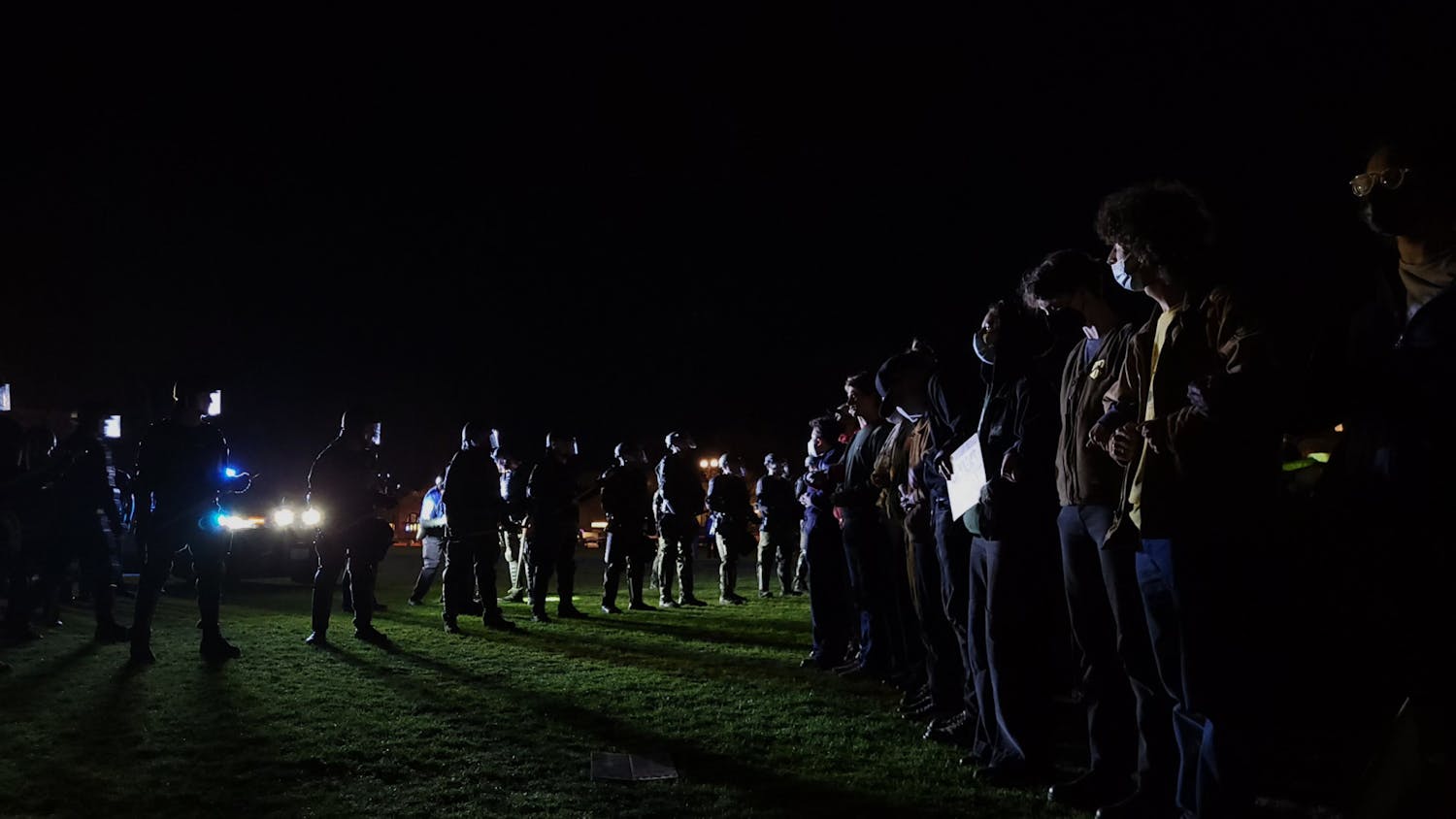There are a lot of ways to spend your winter vacation, and most of them involve waiting for your friends to get home from their other colleges so that you can spend about a week together before you leave for Dartmouth again. This has been the regimen I have followed for the past two years, but this last winter break I got lucky. I got to be the star in one of New York's most interesting off-Broadway productions: the New York State criminal justice system.
The whole thing started in the summer of '93 when three guys I met on the subway late at night in the city -- one of whom had a closed knife in his fisted hand -- got confused about the concept of property and tried to take some of mine. They were not interested in my explanation that the idea of personal property excludes this, and they took everything of value that I had on me: a dollar and my favorite knife. They didn't believe I had only a dollar on me, but after a thorough search they were convinced, and I told them to take care of my knife because it was a truly good knife.
Once they were done with me, I slinked up the stairs to the token booth, and much to my unending amazement, there was a police officer right there. I rendered a quick description, and he went down the stairs, 9mm Glock drawn, and caught the guys.
Two of them pleaded guilty to robbery immediately and got short sentences. The third man it seems had gotten caught confusing property rights twice before and faced spending a long time in jail if he were found guilty. So off to court I went.
The direct examination was fairly uncomplicated and ended with me saying to the jury, "That man seated there, beyond any doubt in my mind, robbed me that night." The prosecution even subpoenaed one of the guys that had pled guilty, and he said something like, "Yep, me and the defendant and my friend robbed that guy."
The first deliberation came back 11 -1 innocent. When the prosecutor said something like "you guys must be joking," the second deliberation came back 7 - 5 guilty. It was a hung jury.
Why? Two reasons. Firstly, because the defense attorney brought up that in my description of the suspects I mentioned that they were black, though I did not cite their specific skin tones. She suggested that I must have thought that all African Americans looked the same, apparently ignoring the fact that it's hard to mistake three black men standing together in a virtually empty train station. When I said that African Americans generally have dark skin and that it must have been good enough because the police officer -- also African American -- got the right guys, I had hung myself. The jury thought I was an insensitive clod.
The second reason is that when the guys surrounded me, all glaring and one with a knife in fisted hand, I spoke first, saying, "Look, I don't want any trouble. Do you want my money?" The knife turned out to be an elaborately-faked switch-comb, and the defense attorney said that what actually happened was that three African Americans stood close to me, and I freaked out and thought they must have been muggers and begged them to take my property. Five jurors bought it. Does this mean that anyone can scare the crap out of someone else, take his property and get away with it?
The moral here is that the justice system is seriously flawed, and it's partly because of a misplaced consciousness of race and color. It is indeed important to realize that certain races have been systematically discriminated against, and that this discrimination must stop. However, when someone robs someone else and his guilt is overwhelmingly clear, justice should be blind. All that matters is that the proper assailant is caught and that he or she is convicted. To let a clearly guilty man walk because his victim did not describe the tone of his skin but only his race, or because the defense was able to exploit a stereotype about a race of people, is a sign that something obscene has happened.
Most of the jurors were African American, and when an attorney plays on their sympathy towards their race, she is actually insulting them. They should not be led to believe that it is okay to let a guilty man walk because his victim was not as culturally sensitive as he could have been.
I guess next time I'll have to cite skin tones to the police and let the robbers knock me around a bit first so that we can be certain that they are indeed bad guys and so that in an empty train station the officer can look for "a very dark brown-skinned male, a light-brown-skinned male and a somewhat brown-skinned male." The simple truth is that the innocent should be protected, and the guilty should serve, be they black, white, yellow, or mostly brown with a slightly yellow hue.
In the meantime, I have to go back down to New York one weekend to testify again. I can take comfort in one thing, though: the defendant has been unable to make bail, and he's been in jail since the summer of '93.


